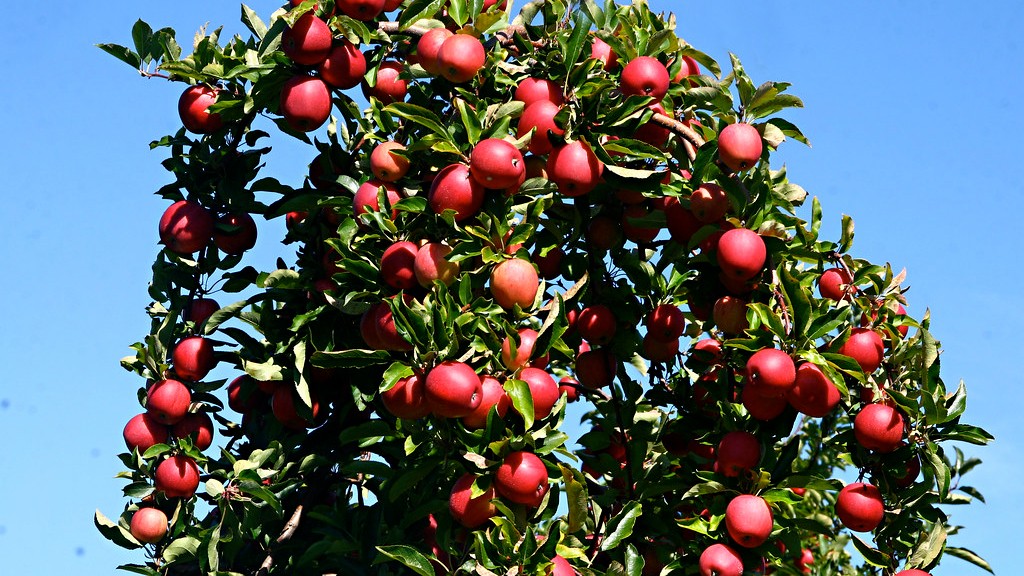How Long Does It Take for an Avocado Tree to Produce?
Avocado trees are a rich, nutty, and creamy treat enjoyed by many people around the world. Not only can its fruit be used in a variety of recipes, but its oil is also highly sought after for its health benefits. If you’re thinking of growing an avocado tree, you might be wondering just how long it takes for one to produce a harvestable crop. Let’s explore the answer to this question in more depth.
Though it depends on the variety of the tree, most avocado trees bear fruit in 4 to 8 years, depending on how well it’s grown. Once you’ve planted it, it will take about 3 years for it to flower and another year or two for the flowers to turn into mature fruit. If your tree were to live in nature, it would take even longer for it to produce fruit. This is because it would start with a seed, germinate, reach adulthood, and eventually produce fruit.
As it takes a while for the avocado tree to produce fruit, there are a few key factors that you will need to consider in order to maximize its production. First, you need to make sure your tree gets plenty of sunlight. Avocados are tropical fruit, so they need lots of warmth and light in order to grow and thrive. If your tree doesn’t get enough sun, it won’t be able to produce fruit at optimal speed. Second, you need to make sure your tree is healthy and well-maintained. This means fertilizing, pruning, and watering regularly, as well as controlling pests, weeds, diseases, and other problems that can cause the tree to suffer. Finally, you need to select the right variety of avocado for your region. Different varieties of avocado thrive in different climates, so it’s important to choose the one that best suits your area.
If you want to speed up the process of producing an avocado crop, you could consider investing in grafted avocado trees. Grafted trees are seedlings that have been grown from two or more different varieties of avocado. This allows for a faster maturation time and higher fruit quality, as the trees will inherit the beneficial characteristics of both parent trees. This is a great option if you’re looking for a tree that will bear fruit in a shorter time frame, but it can be expensive and can be difficult to find a tree that’s right for the climate.
In summary, the amount of time it takes for an avocado tree to produce a crop depends on the variety you choose, the environment it’s growing in, and the care it’s given. Generally, it takes about 4 to 8 years for the tree to grow, flower, and produce fruit. Additionally, you can use grafted trees to speed up the process and produce higher quality fruit.
Fertilizing
Fertilizing your avocado tree is essential, especially if you want to maximize its fruit production. Avocado trees need nutrients to grow and produce fruit, and while they can get some of these nutrients from the soil, they will benefit considerably from a steady and consistent supply of fertilizer. Different types of fertilizer can be used, including both organic and chemical options. Chemical fertilizer is generally more accessible and easier to use, but not always the most cost-effective. Organic fertilizer is considered more sustainable and can help create healthier soil and better quality fruit, but it can be harder to come by and more expensive.
Pruning
Pruning your avocado tree is also important for its optimal growth. Pruning helps to keep the tree healthy, encourages fruit production, and keeps the tree from becoming overgrown. It’s important to be careful when pruning, however, as it can cause more harm than good if not done properly. Before pruning, it’s important to consult with a professional to make sure you’re doing it correctly. Pruning should always be done with sharp, clean shears, as dull blades may tear and damage the tree.
Harvesting
When it’s time to harvest your avocado fruits, it’s important to be patient and wait until they have ripened completely. Avocado fruits are normally picked when they are still green and firm, but they need to be left to fully ripen in order to reach their full flavor and nutritional benefits. It’s also important to leave some of the fruits to mature on the tree, as this will help to encourage future production.
Pest and Disease Control
Finally, it’s important to make sure your avocado tree is well-protected from pests and diseases. Avocado trees are vulnerable to a wide range of pests and diseases, so it’s important to do regular monitoring and take steps to prevent any potential issues. Common pests include aphids, mites, and caterpillars, while common diseases include root rot, bacterial spot, and black spot. The best way to protect your tree is to use integrated pest management, which involves using a combination of chemical and biological methods to minimize the damage to your tree.
Nutrient Management
Nutrient management is also essential for the health of your avocado tree. Proper nutrient management ensures that the tree is receiving enough of the right nutrients to produce healthy and flavorful fruit. Various soil tests can be used to make sure that the soil has the proper pH and nutrient content, while the use of organic compost and mulch can help to keep the soil healthy and provide the necessary nutrients.
Training
Proper training is key for an avocado tree to reach its full potential. Training helps to keep the tree from becoming overgrown and unmanageable, and it can help to maximize the sun exposure for fruit production. Training should be done during the early stages of tree growth, before the tree reaches maturity, and it should be done by an experienced tree care expert in order to avoid any potential damage.
Irrigation
Water is essential for the health and production of your avocado tree, so it’s important to provide it with enough water throughout the year. Over-watering can lead to root rot and fungal diseases, while too little water can lead to poor fruit production and quality. An irrigation system can help to provide the tree with a steady supply of water, while also ensuring that water is not wasted.


